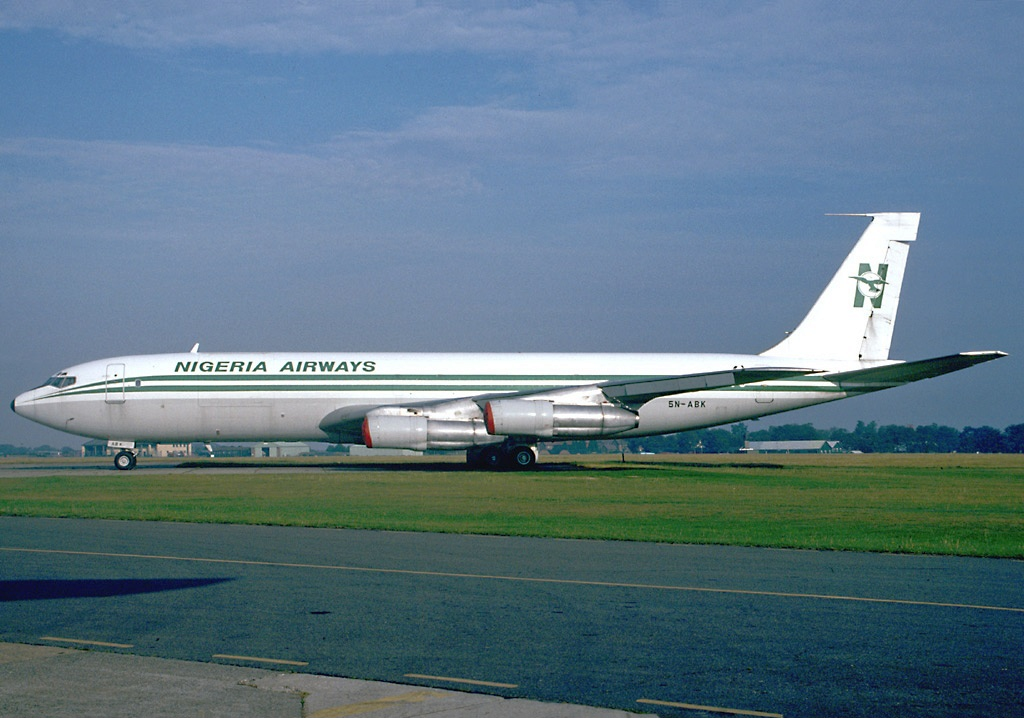Nigeria Airways crashed decades ago, but its legacy is still wreaking havoc on our skies today. Discover the haunting truth!

Have you ever found yourself stuck at the airport in Nigeria, frustrated as your flight gets delayed for the umpteenth time? That’s a trick question. If you’ve ever needed to catch a flight in Nigeria, you’ve, at one point or the other, seen shege 🫵🏾
Here’s a fun (or maybe not so fun) fact: your current predicament may be linked to the same mess that brought down Nigeria’s very own airline, Nigeria Airways, back in the early 2000s.
Yep, the ghost of Nigeria Airways is still very much with us today. But how did we get here? Let’s take a stroll down memory lane.
A High-Flying Start
Nigeria Airways, established in 1958, was the real deal. Back then, it wasn’t just an airline; it was a national treasure. Fresh from independence, Nigeria needed something to show the world that it had arrived. What better way than with a fleet of green-and-white planes zipping across international skies?
Nigeria Airways was the pride of the country. By the 1970s, it had 32 aircraft and was flying high with regular routes to New York, London, and Rome. It wasn’t just for show either—it was functional, profitable, and respected—like everything else about the country at the time.
But, like many great things, it didn’t take long for cracks to show.
The Descent Begins: Mismanagement, Overstaffing, and Corruption
By the mid to late 1980s, Nigeria Airways’ dream was in a nosedive. The KLM technical partners—brought in to keep things running smoothly—bailed out when they saw the writing on the wall: corruption, mismanagement, and bloated staffing had begun to take their toll. The airline, which should’ve been flying high, was weighed down (see what I did there? 🌚) by bad decisions and even worse leadership.
I mean, in this country it was always a matter of time before politicians got their sticky fingers into the mic. Corruption seeped into every corner of the business, from ticket sales to aircraft maintenance. Nigeria Airways went from flying over 2 million passengers annually in the mid-1980s to a humbling 10,000 passengers by 2003, with only one aircraft left in its entire fleet (from 30 in the 1980s). Mismanagement wasn’t just a problem—it became the whole business model.
The Crash Landing: Corruption in Full Swing
The Justice Nwazota panel set up in 2002 to probe the collapse revealed some eyebrow-raising details. How bad was it? Well, looting and corruption drained over ₦60 billion from the airline. Funds meant for maintenance and salaries were pocketed by top officials, and when the airline went under, it left thousands of employees jobless and pension-less.
As the final nail in the coffin, the airline was liquidated in 2003. While the Federal Government tried to retrieve the stolen funds and hold those responsible accountable, little was achieved. Most of the people involved still walk free, and thanks to their identities not being made public, are even active in today’s aviation industry. Talk about adding insult to injury.
A Haunting Legacy: Today’s Aviation Woes
So, what does Nigeria Airways’ collapse have to do with your delayed flight today? Unfortunately, the issues that grounded Nigeria Airways—corruption, poor management, lack of investment—are still very much alive in Nigeria’s aviation sector. Many of the individuals and practices that led to the downfall of the national airline have carried over into the management of today’s airlines.
We’ve seen new carriers come and go, but none have managed to escape the systemic dysfunction that began with Nigerian Airways. Flight delays, cancellations, and poor service? All signs that the rot runs deep. The recent drama surrounding Nigeria Air, the proposed national carrier, shows that the aviation industry hasn’t learned much from the past.
Meanwhile, other African countries managed to avoid this kind of implosion. Ethiopian Airlines, for example, grew from strength to strength, while Nigeria Airways was busy crashing and burning. How did Ethiopia manage to get it right? One word: management. Instead of political interference and short-term gains, Ethiopian Airlines was run like a business. And it worked.
Can Nigeria’s Skies Be Clear Again?
There’s hope for the future, but it requires more than just setting up another national airline. Unless the systemic issues of corruption and poor governance are addressed, it’s hard to see how things will improve. Nigeria’s aviation sector could take a page from other African airlines that have managed to thrive by focusing on transparency, good management, and strategic investments.
For the passengers, though, the situation is frustrating. You’re not just paying for your ticket—you’re paying for years of mismanagement, corruption, and inefficiency. So the next time your flight is delayed, spare a thought for Nigeria Airways. The ghost of that airline is still with us, and it’s probably sitting next to you in the terminal, sipping a very expensive coffee.
In Conclusion
Nigeria Airways didn’t just fall from the skies; it took down a whole aviation system with it. The corruption and inefficiency that grounded the airline continue to haunt Nigeria’s aviation sector today. Without real accountability and investment in proper management, the situation is unlikely to change. Until then, delays, cancellations, and poor service will remain a frustrating reality for travellers. If anything, let Nigeria Airways’ legacy serve as a cautionary tale of what happens when corruption takes flight.
Till next time,
Vaami from SimplVest 🚀
Interested in our other 9ja History Pieces? Say less, here’s the one on Nigeria’s First Millionaire












